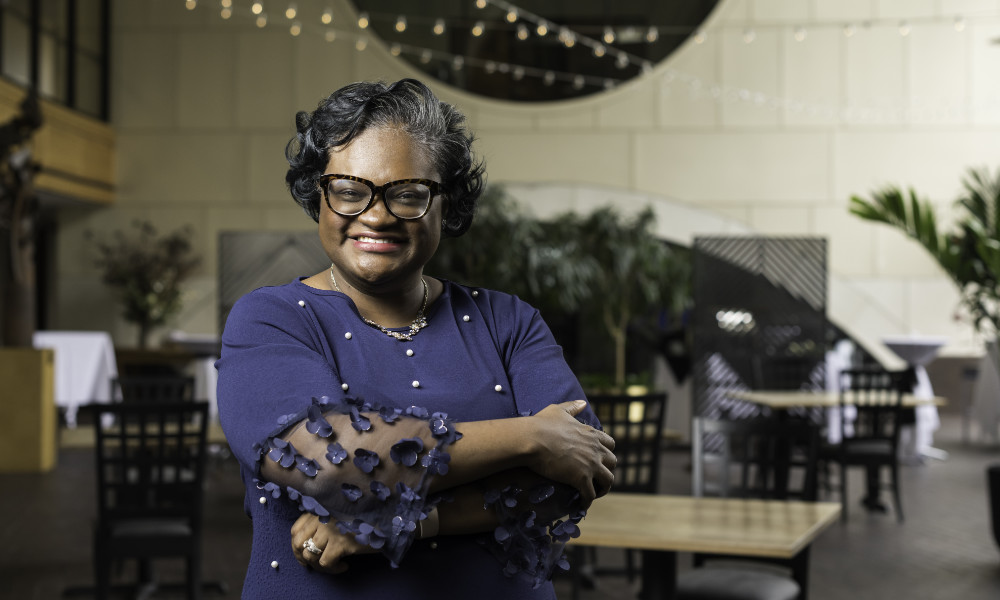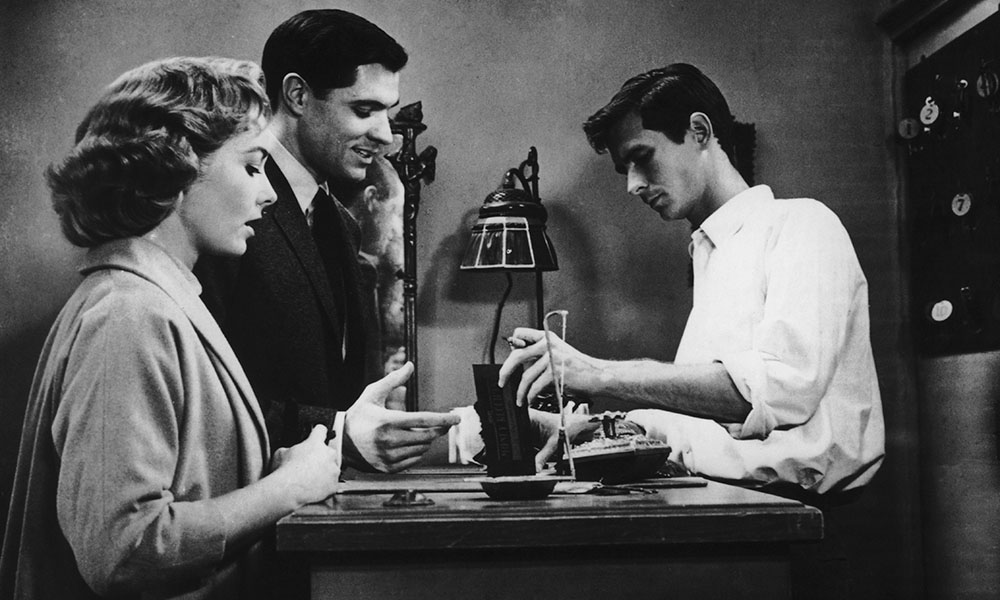On the 40th anniversary of its inception, the Janet Heininger Kafka Prize recognized a short story collection: Mia Alvar’s debut work of fiction, In the Country.* Since 1976, the Susan B. Anthony Institute for Gender, Sexuality, and Women’s Studies and the Department of English have awarded the annual prize to a promising but less established American woman who has written the best book-length work of prose fiction.
Alvar’s collection “stood out as the selection committee’s unanimous choice among almost 150 entries for its ability to craft a cohesive, intricately wrought world out of nine separate narratives,” explained Professor of Spanish Beth Jörgensen. She—along with fellow committee members Katherine Mannheimer, associate professor of English, and Jason Peck, visiting assistant professor of German—took only five minutes to agree on this year’s selection.
In her introductory remarks during the ceremony and reading, Jörgensen called In the Country a “fresh and valuable work of fiction for an English reading audience, in part because it provides insights into the rarely written lives of first-generation Filipino immigrants.” Alvar herself was born in the Philippines and raised in Bahrain, before moving to the United States to study and earn her undergraduate degree at Harvard University and an MFA from Columbia University.
Remarking on the quality of Alvar’s writing, Jörgensen noted, “She crafts a beautiful lucid prose that is what we might typically call ‘poetic.’ Her descriptions of characters and places are both rich and economical in their use of language.” Jörgensen read aloud the following passage from the first story in the collection as an illustration:
In the decade since I left she hadn’t aged, exactly. To my eyes she seemed not older but more. More frail; more tired; softer-spoken; her dark, teaspoon-shaped face cast farther down. Every feature I remembered had settled in her and been more deeply confirmed.
Expressing her gratitude during the ceremony, Alvar said, “I really see this book as the product of the efforts of so many of the amazing women in my life.” She also admitted to “fangirling over the list of women writers who received this prize before,” which includes Toni Morrison for Song of Solomon, Ann Tyler for Morgan’s Passing, Ursula K. Le Guin for Always Coming Home, Ann Patchett for Taft, and Nell Freudenberger for The Dissident.
Alvar read from the beginnings of three stories from the collection—“The Kontrabida,” “Legends of the White Lady,” and “Shadow Families”—before answering questions from the audience of students, faculty, staff, and community members. She offered her insights on writing, saying, “I knew that I was going to be focusing on the diaspora and on immigrant and migrant lives. Knowing that kind of geographic connection freed me up to not really think about a theme. When my agent and editor were talking about order, I knew I wanted ‘The Kontrabida’ to be first and ‘In the Country’ (the title story and the longest) to be last.”
In the Country was written over a span of about ten years, during which time Alvar grew as a writer. “There were a lot of moments from the earlier stories where I felt like I was still learning and not seeing solutions that are a little more obvious to me now. That’s where having an editor helped. She was seeing everything at the same time and able to help me with the things that were written early in my development.” Alvar highlighted the contributions of her agent and editor, both of whom “share many of the qualities that Janet Heininger Kafka possessed.”
The idea for the Kafka prize came out of the personal grief of the friends and family of Heininger Kafka, a young editor killed in an automobile accident just as her career was beginning to achieve its promise of excellence. She was 30 years old, and those who knew her believed she would do much to further the causes of literature and women. Her family, friends, and professional associates in the publishing industry created the endowment from which the prize is bestowed.
“It’s been an incredible honor for me to accept this prize from the institute, as someone who minored in women’s studies as an undergraduate and who, from the time that I first started writing fiction, was drawn to depicting the lives of mothers, daughters, and sisters,” said Alvar.
*Correction, November 1, 2016: An earlier version of this story incorrectly stated that In the Country was the first short story collection to receive the Kafka Prize. In fact, The Instinct for Bliss, a collection of short stories by Melissa Pritchard, won the prize for a book published in 1995.




